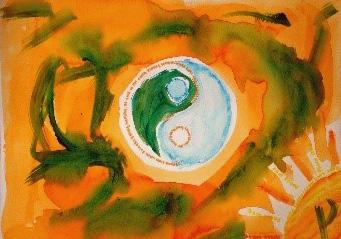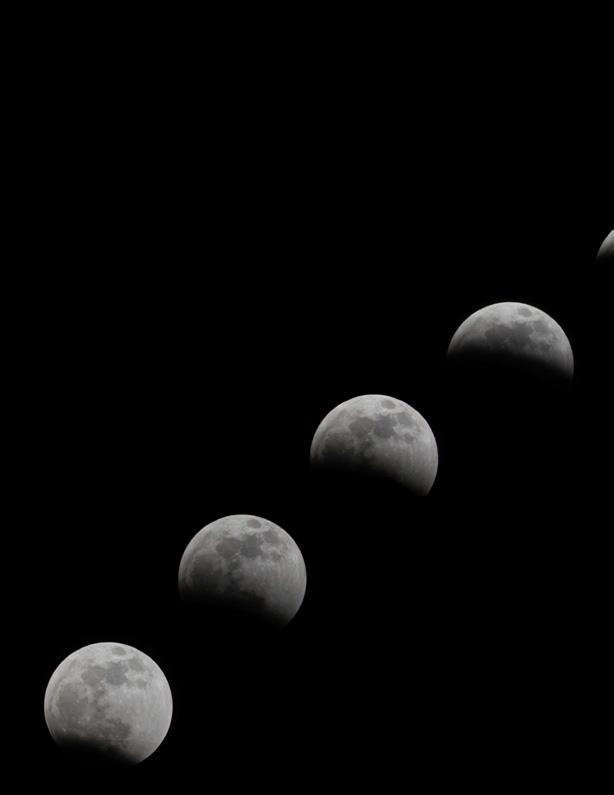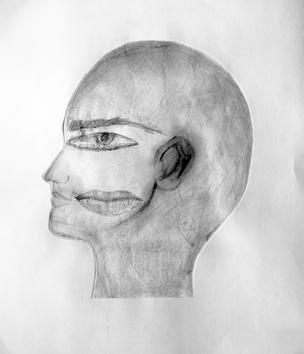
7 minute read
Elitsa Sklar
The Torah of Rochelle Zell
Lo Lefached, Do Not Be Afraid Elitsa Sklar, RZJHS 2020
Elitsa delivered these words during the siyum ceremony.
When I was in Israel for my older brother’s bar mitzvah, my family stayed on a kibbutz in the Golan heights less than a mile away from the border with Syria. After Shabbat dinner, my siblings and I playfully explored the bomb shelters before joining the adults outside to eat cholent on a beautiful, star-filled night. Suddenly, we heard explosions in the background, chemical weapon bombings from Assad’s regime in Syria. Panicked, people ran towards the bomb shelter. Tears began strolling down my face, and the fear of the unknown overcame me. I was trembling with fear. Suddenly, I felt a hand on my shoulder, and this Israeli man, our neighbor for the next week on the kibbutz, began quietly singing a familiar song by Rabbi Nachman of Breslov.
The lyrics go as follows: kol haolam kulo gesher tzar meod v’haikar lo lefached klal. The whole entire world is a very narrow bridge. V’haikar lo lefached klal. And the most essential thing is not to fear at all.
All of the kibbutz members began joining in, adding their voices one by one to create a communal song. And a sense of calm enveloped me. The community and togetherness on that night while singing this song made me realize that I was on this metaphoric narrow bridge, a quintessential liminal space. Amidst the fear of the unknown, I felt a strange but welcoming calmness, that even in the most difficult situations, I felt G-d’s protective presence surround me; I felt thousands of years of Jewish tradition. I felt Jews all around the world advising me not to fear. When I first came to Rochelle Zell, I observed the then-senior class begin Tefillah by singing these exact words I heard in Israel years before: lo lefached, don’t be scared. Coming in not knowing others, I was intimidated by the workload and the new teachers and a new, unfamiliar environment. After the experience of singing Rabbi Nachman’s song together with all of RZJHS, I knew immediately that the high school I chose would be much more than a mere brick and mortar education; high school would transform into a second home that would, in turn, transform me.
From our first Tefillah freshman year, to bus rides before cross country meets, to Shabbatons and ultimately, our senior Israel experience, this song, kol haolam kulo, is an RZJHS favorite, and today, as we conclude our Rochelle Zell journey, I would like to delve into the words and deep meaning of Rabbi Nachman’s poetic verse in relation to the upcoming Jewish holiday of Shavuot and our current reality.
Shavuot celebrates the receiving of the Torah and the relationship between the Jewish people and G-d. In Exodus: 19:17: it says, ”Vayotze Moshe et ha’am likrat haElohim min hamachane; vayityatzvu b’tachtit hahar. Moshe led the people out of the camp toward G-d, and they took their places b’tachtit hahar, which in the context is best translated as at the foot of the mountain. However, midrashicly it is understood as the Israelites were physically under the mountain, tachat hahar.
In a well-known rabbinic midrash commenting on the word b’tachtit hahar, Rabbi Avdimi bar Chama bar Chasa said that G-d “overturned the mountain above the Jews like a cast, and said to them: If you accept the Torah, excellent, and if not, there will be your burial” (Shabbat 88a). Such imagery seems extremely threatening and violent, instilling immense fear. The act of receiving the Torah itself is terrifying; am Israel love G-d but simultaneously fear G-d. In Sefer Devarim, G-d’s voice is described as coming out of “haesh hagedolah hazot: a fearsome fire” and the Israelites fear that if they hear another word of G-d they will die. G-d wants Benei Yisrael “l’yirah oti,” to revere me. But they are fearful, so
Moshe hears the word of G-d and relays it to Am Yisrael. The imagery of G-d holding up Har Sinai over Benei Yisrael’s heads has a dual and seemingly contradictory meaning; it is also interpreted as an act filled with love and joy. The Mechilta d’Rabbi Yishmael, a halachic midrash on the book of Shemot, connects the quotation from Shemot of being under the mountain to a verse from Shir Hashirim, Song of Songs, a book in the Tanach whose theme is all about love, classically understood as the love between the Jewish people and G-d. See Sklar, next page
The Torah of Rochelle Zell Sklar, from previous page not let ourselves become overcome by fear. Lo lefached. themselves to crumble from angst and never receive the the song kol haolam kulo embodies the RZJHS expeRochelle Zell community. We are scared, but we will We have been part of a transformative community. This Through this loving lens, tachtit hahar is imagined as community of scholars and Jewish thinkers emerging G-d draping the mountain over Benei Yisrael, as a chfrom our education that has pushed us to solve chaluppah, a marriage canopy. Shavuot symbolizes the lenging calculus problems in addition to searching for covenantal marriage between Am Yisrael and Hashem. personal and universal truths will never leave us. The Shavuot teaches us that there are times in which we fear life lessons we learn from studying James Joyce’s EveG-d, but we shall also love G-d and be loved by G-d. lyn and her struggle between the past and unknown At Har Sinai, we did not picting an ideal modern let fear stop us from culman will never leave us. tivating a relationship At Har Sinai, we did not let fear stop us from with the Unknown. Rathcultivating a relationship with the Unknown. The kindness we have er, Benei Yisrael emerged beyond the fear and into a chupah of love, a lifeRather, Benei Yisrael emerged beyond the fear and into a chupah of love, a lifelong learned from our teachers as they bring us into their rooms for a little long relationship with the relationship with the Transcendent... Benei life coaching session or Transcendent. Yisrael did not allow themselves to crumble as they come and support By pushing beyond the fear and leaping into the from angst and never receive the Torah; Benei Yisrael leaned on their leaders and peers to our athletic endeavors will never leave us. And the kindness we have love of what it means to be assist them, turning to Moshe to listen to the learned from one anothb’tachtit hahar, wrapped words of G-d and convey it to the people. er when students join toby the mountain now felt gether to dance in joyous as G-d’s loving wedding times during Tefillah and canopy, we are able to all come together during experience this transformore difficult times to mative Jewish community. Benei Yisrael did not allow support those suffering, this will never leave us. Torah; Benei Yisrael leaned on their leaders and peers to As much as it is terrifying, truly terrifying, to leave our assist them, turning to Moshe to listen to the words of safe space of Rochelle Zell and venture into the world at G-d and convey it to the people. large, we are ready. We embrace the knowledge that we Throughout the past four years, we have created a beauing strength from considering Yaakov’s wrestling with tiful environment at Rochelle Zell because we have the angel, lessons of not wronging the stranger ki gerleaned on one another, striving beyond the fear, interim heyitem be’eretz mitzvrayim, and lessons to respect nalizing the words lo lefached, and leaping into a chuminority communities as we learned about America’s pa of love. The Torah’s message of love on Shavuot and complex history in AP US History. rience of late-night conversations and zemirot (songs) We keep walking, putting one foot in front of the othon Shabbatons and sports tournaments, deep conversaer, even when life seems terrifying. When we are on that tions with the faculty, and knowing that students from narrow bridge and look down into the depths of the unall different grades are greeting us in the halls, checking known, we could fall, even fail. But we could also cross in whenever we’re feeling down. We learn to love, to the bridge, and fly. And in times of fear, be it now or the delve into new experiences, to walk the narrow bridge scary endeavors we will ultimately take on in our upcombecause we shall not fear. We are loved. ing future, we shall remember, to always keep going, to As much as we are apart physically today, we are also loving canopy of transformative, Transcendental love of together, bound by our love and appreciation for the one another and love of Hashem. future and Rav Soloveitchik’s Adam I and Adam II dehave learned lessons these past four years about regainproceed beyond our fear and terror and advance into the








